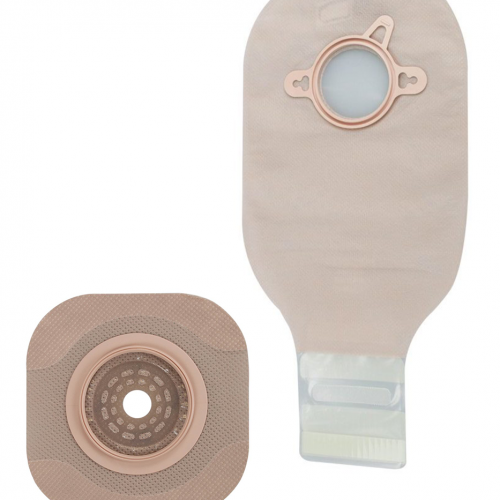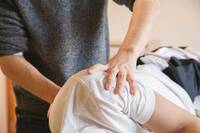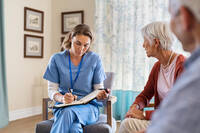Cost of Health Care, Medical Billing / 04.07.2024
Automated Eligibility Coverage Tracking Platforms: A Game Changer for Billing and Revenue Recovery?
Patient insurance coverage frequently changes, which can lead to missed details when tracked manually. This often results in claim denials and subsequent reimbursement issues.
This article explores the benefits and effectiveness of automated eligibility coverage tracking platforms designed to address these challenges effectively.
The Problem: Manual Tracking Just Doesn't Cut It Anymore
Determining a patient’s status as well as his or her insurance is a crucial but time-consuming process in the billing department. Previously, it included calling insurance companies, verifying the data in different systems, and entering the information into spreadsheets. Since patient details are dynamic and various claims need to be addressed every week, it becomes impossible to manage information updates through traditional methods. Some of the problems include:- Time-Consuming Process - Verifying coverage manually can take up to 30 minutes per patient. For large billing companies, this may translate into big time losses.
- Human Error - Manually compiling and updating records inevitably leads to inaccurate or outdated information falling through the cracks.
- Claim Denials - Incorrect policy details lead to higher denial rates, payment delays and lost revenue.
- Lack of Visibility - With records scattered across systems and spreadsheets, billing teams lack clear visibility into coverage changes.






 The landscape of public health is evolving rapidly, and with it, the demand for skilled professionals is surging. A graduate certificate in public health is increasingly recognized as an essential step for individuals seeking to bolster their qualifications. Here's how a specialized certificate can open new doors, enhance your expertise, and position you as a leader in the field. Keep reading to uncover the benefits that await.
The landscape of public health is evolving rapidly, and with it, the demand for skilled professionals is surging. A graduate certificate in public health is increasingly recognized as an essential step for individuals seeking to bolster their qualifications. Here's how a specialized certificate can open new doors, enhance your expertise, and position you as a leader in the field. Keep reading to uncover the benefits that await.

 Eczema, also known as atopic dermatitis, is a chronic skin condition characterized by dry, itchy, and inflamed skin. While there are various treatments available, many people turn to home remedies to manage their symptoms. In this article, several natural remedies for eczema are explored, some remedies that should be avoided are discussed and tips for treating eczema in babies and children are identified.
Eczema, also known as atopic dermatitis, is a chronic skin condition characterized by dry, itchy, and inflamed skin. While there are various treatments available, many people turn to home remedies to manage their symptoms. In this article, several natural remedies for eczema are explored, some remedies that should be avoided are discussed and tips for treating eczema in babies and children are identified.


 Elena Stains
Medical Student
Department of Medical Education
Geisinger Commonwealth School of Medicine
Scranton, PA
MedicalResearch.com: What is the background for this study?
Response: Opioid use has been an increasing problem since the early 2000s in the United States (US) with a surge around 2010. Twenty-five percent of those having abused pain relievers in 2013 and 2014 got those drugs from physicians1. Physicians are particularly well-known for fueling the opioid crisis in Florida in the 2000s. Of the United States’ top 100 opioid prescribing physicians in 2010, an astounding 98 were prescribing in Florida2. Florida taking the main stage of the opioid crisis can be attributed to several factors, including ability of physicians to dispense opioids directly from their offices to patients (i.e. without pharmacists) and the presence of many infamous “pill mills” in the state3–6.
The researchers at Geisinger Commonwealth School of Medicine aimed to analyze the amount of hydrocodone (including brand names of Vicodin and Lortab) and oxycodone (OxyContin and Percocet) distributed in Florida from 2006 to 2021, paying close attention to the peak year of the opioid crisis, 2010. The team used the Washington Post and the US Drug Enforcement Administration’s Automation of Reports and Consolidated Orders System (ARCOS) databases to compile this compelling information.
Elena Stains
Medical Student
Department of Medical Education
Geisinger Commonwealth School of Medicine
Scranton, PA
MedicalResearch.com: What is the background for this study?
Response: Opioid use has been an increasing problem since the early 2000s in the United States (US) with a surge around 2010. Twenty-five percent of those having abused pain relievers in 2013 and 2014 got those drugs from physicians1. Physicians are particularly well-known for fueling the opioid crisis in Florida in the 2000s. Of the United States’ top 100 opioid prescribing physicians in 2010, an astounding 98 were prescribing in Florida2. Florida taking the main stage of the opioid crisis can be attributed to several factors, including ability of physicians to dispense opioids directly from their offices to patients (i.e. without pharmacists) and the presence of many infamous “pill mills” in the state3–6.
The researchers at Geisinger Commonwealth School of Medicine aimed to analyze the amount of hydrocodone (including brand names of Vicodin and Lortab) and oxycodone (OxyContin and Percocet) distributed in Florida from 2006 to 2021, paying close attention to the peak year of the opioid crisis, 2010. The team used the Washington Post and the US Drug Enforcement Administration’s Automation of Reports and Consolidated Orders System (ARCOS) databases to compile this compelling information.





 Bone marrow aspiration is a medical procedure where a small amount of the liquid part of your bone marrow is removed for examination. A
Bone marrow aspiration is a medical procedure where a small amount of the liquid part of your bone marrow is removed for examination. A 









 Sensory processing disorders (SPD) present a complex challenge for many children and their families, affecting the way kids interact with their environment and respond to sensory stimuli. Applied behavior analysis (ABA) therapy has emerged as a promising approach to support those with SPD. By understanding and addressing the individual needs that come with sensory integration issues, ABA therapy can enhance a child's ability to navigate the world around them with greater confidence and competency. Below, we delve into the ways that ABA therapy can be tailored for children with sensory processing challenges.
ABA therapy is a research-based intervention widely recognized for its effectiveness in helping children with autism and related disorders. It involves structured techniques to improve social interactions, communication, and learning through positive reinforcement. The therapy targets the development of specific skills, behaviors, and responses to various stimuli.
At the heart of ABA therapy lies the consistent measurement and analysis of behavior and the adaptation of strategies to encourage desired behaviors. In practice, this might include breaking down tasks into small, manageable steps and rewarding accomplishments, hence reinforcing the desired behavior.
For those interested in pursuing a deeper understanding or career in this field, a
Sensory processing disorders (SPD) present a complex challenge for many children and their families, affecting the way kids interact with their environment and respond to sensory stimuli. Applied behavior analysis (ABA) therapy has emerged as a promising approach to support those with SPD. By understanding and addressing the individual needs that come with sensory integration issues, ABA therapy can enhance a child's ability to navigate the world around them with greater confidence and competency. Below, we delve into the ways that ABA therapy can be tailored for children with sensory processing challenges.
ABA therapy is a research-based intervention widely recognized for its effectiveness in helping children with autism and related disorders. It involves structured techniques to improve social interactions, communication, and learning through positive reinforcement. The therapy targets the development of specific skills, behaviors, and responses to various stimuli.
At the heart of ABA therapy lies the consistent measurement and analysis of behavior and the adaptation of strategies to encourage desired behaviors. In practice, this might include breaking down tasks into small, manageable steps and rewarding accomplishments, hence reinforcing the desired behavior.
For those interested in pursuing a deeper understanding or career in this field, a 




